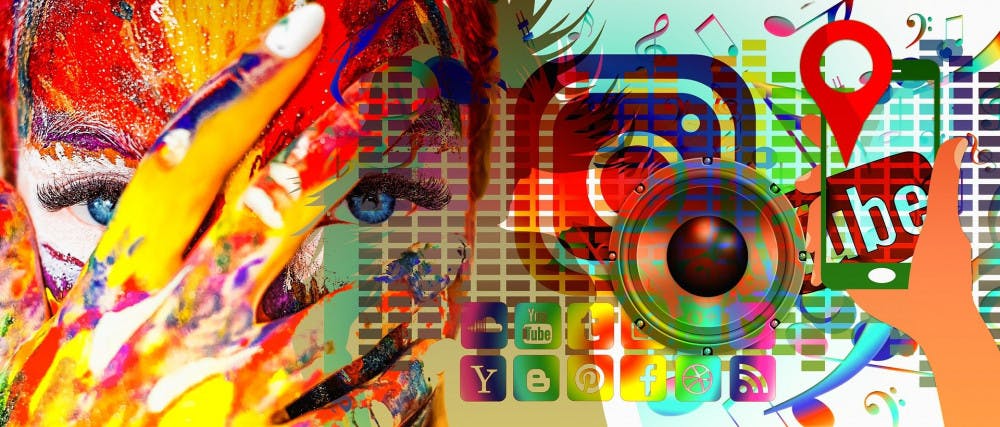Depression, anxiety, and lack of personal identity are just a few of the negative effects of misusing social media. Yet, social networking has become an inescapable part of life, and there are ways to use socials to your personal and professional advantage.
In 2019, the Pew Research Center reported that 70% of young adults use social media platforms regularly. The Pew Research Center studied the link between psychological stress and technology use by asking participants about their social media usage and surveys determining their stress levels as determined by the Perceived Stress Scale, measuring how overloaded, unpredictable, and uncontrollable people feel their lives to be. Researchers concluded that social media forces us to be more aware of stress in other people’s lives and in the world, which can be a contributing factor to stress in one’s own life.
Despite the potentially detrimental aspects of using social media, many college students use it as a tool to make a professional impact, as social media can be entertaining, inspirational, educational, and informational.
“With tools like LinkedIn, I’ve been able to share what I’ve worked on with other professionals. It has allowed me to build a brand for myself and get my name out there,” said Christina Poetz, IUPUI senior and social media specialist for the city of Fishers.
The CDC has also done studies that suggest that social media can deteriorate people’s in-person communication skills. This can lead to social and general anxiety, especially in college students who are expected to take part in class discussions, are required to take public speaking courses, and collaborate with others. Additionally, researchers have found that seeing others on social media smiling and with friends can lead to depression and social withdrawals.
“Set boundaries and use the tools that social media platforms give you to create a healthy experience online. You can take several actions to set boundaries for yourself on social media,” said Morgan Campbell, IU Bloomington’s social media manager.
Campbell also suggests the following tips:
- Only follow people you know or trust. This way, you can trust that what you're seeing/reading on your timelines is worth engaging with from your profile.
- Set your profiles to private so that only the ones you know can see what you post.
- Set time limits so that you don't doom-scroll down a hole that could affect your mood negatively. Don't engage with those who are only cynically using social media. Several users use social media to vent their anger—whether relevant to the topic or not—and won't stop until they do.
- Muting words or hashtags on Twitter will remove them from your timeline, so you don't have to read about it while scrolling. Other platforms will allow you to mark a post as "I don't want to see posts like this" to help decrease the chance you keep seeing similar posts.
When used correctly, social media can have a positive impact, but it is important to be aware of when we can use it to our advantage.





